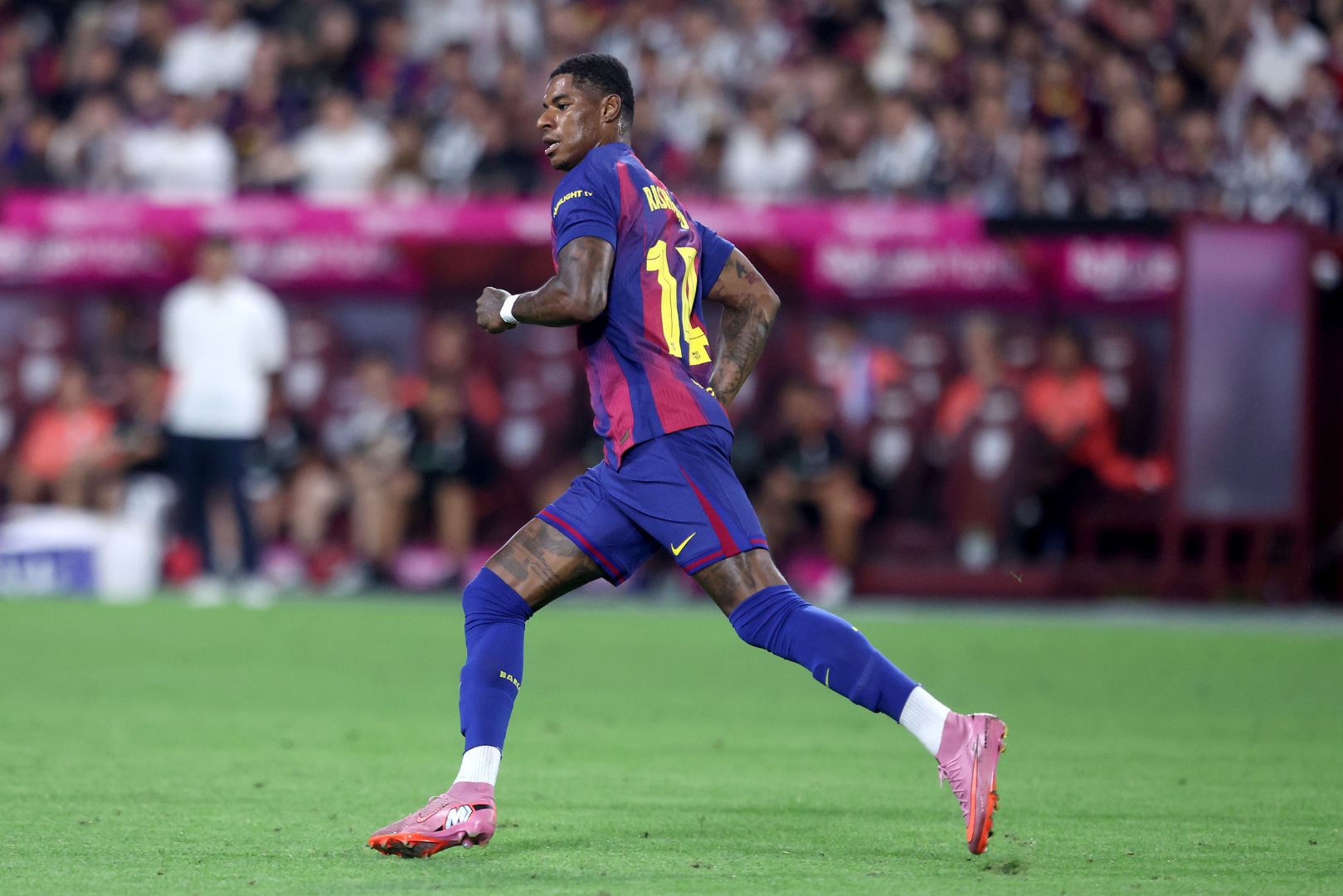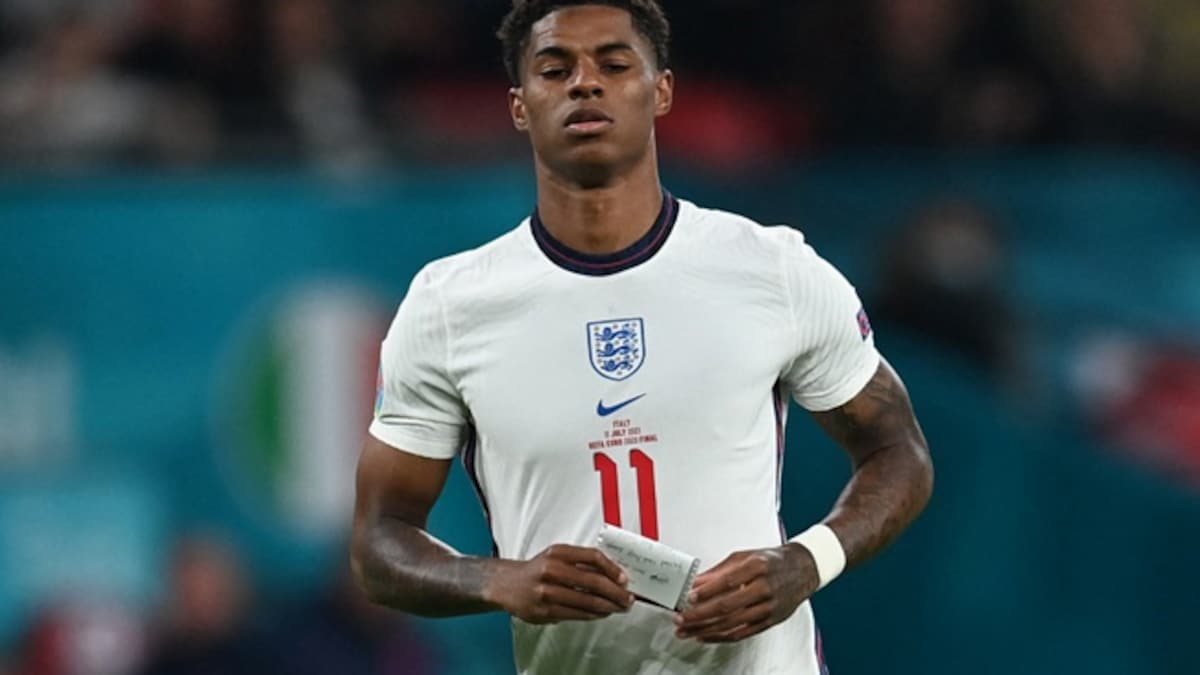In recent months, Marcus Rashford has become a symbol of hope and disappointment in equal measure for football fans worldwide. From his early days at Manchester United to a short stint at Barca, he’s been under the spotlight for both his incredible potential and his ongoing struggles to find consistent form. As he navigates the turbulent waters of club and international football, many are asking: can Rashford reclaim his glory, or is he destined to remain a lost soul wandering the pitch? This comprehensive analysis explores his recent performances, shifting roles, psychological challenges, and the uncertain road ahead, revealing the deeper story behind his rise and fall.
More Rashford’s Turbulent Spell at Barcelona – Clinging to La Liga Dreams Amidst Unmet Expectations 25-26
⚽ A golden opportunity… then it slipped away.

Rashford’s performance at Villa Park last season was initially portrayed as a promising step toward redemption. Just a year earlier, he had electrified the atmosphere, inspiring Manchester United fans and even convincing England’s coach Thomas Tuchel to give him a vital second chance. That night was supposed to be a turning point, a stage for him to showcase the resilience and talent that once made him a heroic figure on the football pitch. Instead, it turned into a stark reminder of how quickly fortunes can change. Rashford missed a golden opportunity when a scrumptious cross from Eberechi Eze was followed by a gaffe that saw the ball sail beyond him, leaving fans and critics alike questioning his sharpness and mental state. In football, as in life, opportunities come as fleeting whispers — and Rashford’s recent failures seem to spell the end of his golden period.
This missed chance symbolized much more than a simple error; it epitomized the broader crisis in his confidence and form. Despite the promise of a fresh start at Barca, where he hoped to mull over a new beginning with world-class teammates like Yamal and Lewandowski, Rashford has found himself overshadowed by his own inconsistencies. Like a star fading in the night sky, the once-bright hope of Rashford leading the English frontlines has dimmed, raising urgent questions about whether he can revive the opportunities he so desperately needs. As fans and pundits watch anxiously, can Rashford reconnect with that elusive golden touch, or has his star fallen forever?
🥶 Dull performance, waning confidence.

His recent performances paint a bleak picture of a player increasingly adrift from his prime. Though he is still young, Rashford’s form has dipped alarmingly, and the confidence he once radiated now appears to be drained. Multiple appearances for Barca have been marked by uninspiring displays — limited touches, misplaced passes, and a frustrating tendency to drift into obscurity. At the international level, his performances have often been underwhelming, culminating in an overall goal drought that has extended close to two years. Such a dry spell dramatically saps his morale and the trust from coaches, teammates, and fans who once saw him as England’s future star.
What contributes to this decline? It’s not solely a question of technique or physical ability but also the psychological toll of unmet expectations. Rashford, who once thrived on speed, agility, and instinct, now seems confined by self-dimmed doubts. The once fierce belief in his capabilities appears to have melted away, replaced with hesitation and uncertainty. The mental scars of missed chances and the frustration that comes with not living up to potential are increasingly evident, transforming his presence on the pitch into a shadow of his former self. Without a significant turnaround, his future in both club and national colors hinges on overcoming this crisis of confidence.
🔥 Comparing unevenly with Grealish.
In stark contrast to Rashford’s struggles, Jack Grealish’s recent resurgence has been nothing short of remarkable. While Rashford languished on the sidelines, Grealish found new life with Everton, starting three consecutive matches and tallying four assists in quick succession. His newfound confidence and flair have reignited hopes for a lesser-known talent who, despite earlier doubts, is now proving his worth. Grealish’s ability to adapt, learn from previous setbacks, and display resilience highlights how mental strength can transform a footballer’s career. His upward trajectory starkly contrasts with Rashford’s stagnation, prompting critical analysis of their career choices and mental resilience.
Grealish’s resurgence isn’t just about skill but also about attitude and adaptability—traits Rashford seems to be missing currently. Rashford’s movement on the field has become predictable, oftenwaiting for the ball rather than creating himself, further emphasizing his lack of confidence. When compared to Grealish’s boldness and self-assurance, Rashford’s dwindling form makes it painfully clear that mental fortitude and adaptability are just as crucial as raw talent. This comparison accentuates the importance of psychological resilience—a lesson Rashford must internalize if he hopes to revive his career and reclaim his status among the best.
Is the role truly declining or diminishing?
The ongoing debate centers around whether Rashford’s struggles stem from a role mismatch or a genuine decline in ability. Coaches have long identified his natural talent as a winger and a versatile forward, yet recent tactics have pushed him into different roles that may not suit his style. Unai Emery’s insights at Aston Villa indicated that Rashford performed better as a free-roaming center forward, exploiting spaces and using his agility. Contrarily, under Tuchel’s system at MU and Barca, Rashford has been pinned to the left wing, relying heavily on dribbling and crossing, which may not play to his strengths anymore. It raises the question: Is he simply in the wrong position, or is his decline a sign of fading skill?
The real challenge lies in whether Rashford can adapt to new tactical demands or if internal confidence issues have rendered him ineffective regardless of his position. The reality is that his recent displays—lack of impact, missed opportunities, and poor decision-making—point more toward a loss of form than a role problem alone. If the role is misunderstood or misapplied, a simple positional tweak could rekindle his form. But if his difficulties are rooted in a declining physical state or psychological turmoil, mere shifts in tactics won’t suffice. Rashford must undergo a holistic approach to his game, addressing both technical and mental aspects, to restore his status as a top-tier player.
⏳ Need a goal to come back to life?
The haunting reality is that Marcus Rashford hasn’t scored for England in nearly two years—a statistic that underscores his crisis of confidence. Goals are often the catalyst for a player’s resurgence; a decisive strike can reignite belief, unlock form, and restore fans’ faith. Historically, Rashford’s best performances have come after pivotal goals, which have transformed perceptions from skepticism to admiration. For him, the upcoming crucial moments could serve as life-saving opportunities to rediscover his scoring instincts. However, with intense competition and a limited window before the World Cup, hesitation or continued misses could diminish his chances of making a meaningful comeback.
Shooting blanks, Rashford faces an urgent need to break free from this goal drought. His current playing style—waiting passively, lacking that instinct to finish—harms his confidence even further. To rejuvenate his career, he must focus on sharpening his finishing, seizing fleeting opportunities, and regaining his composure. This may require changes in training routines, mental coaching, or even a temporary role adjustment to ease the pressure. A single goal, or a series of impactful plays, could serve as the psychological lift he needs to propel himself back into England’s plans, or risk becoming a forgotten figure in the football world.
What does the future hold for Rashford?
Looking ahead, the future of Marcus Rashford remains shrouded in uncertainty. Despite his tremendous promise and proven ability, recent performances at Barca and for England have cast doubt over his long-term prospects. Supporters and pundits alike are questioning whether he can overcome this slump or if his career trajectory has been permanently altered by injuries, mental fatigue, or tactical misalignment. Even with coaching support from Tuchel and others expressing faith, Rashford’s body language and on-field decisions paint a different picture—one of hesitance and lost confidence. Without swift and decisive change, he risks falling into the category of talented players who burn out before fulfilling potential.
The question is whether Rashford can utilize the remaining months to reinvent himself. Perhaps a shift back to his natural role as a striker, or a mental reset involving sports psychologists, could be the catalyst. If he fails to adapt, his path to the World Cup and beyond might be blocked by newer, more confident rivals. The road forward depends on his ability to embrace challenges, rediscover his scoring touch, and claim back his authenticity as a top player. Ultimately, his story may hinge not just on physical ability but on a resilient mindset that can withstand adversity and reignite the passion that once made him a star.
Summary.
Marcus Rashford’s journey encapsulates both the dazzling heights of early success and the sobering depths of recent struggles. From his early days at Manchester United to a brief spell at Barca, he has faced frequent questions about his consistency, adaptability, and mental strength. His missed opportunities, along with comparisons to Grealish’s resurgence, highlight how fragile a footballer’s confidence can be. Whether he is miscast in his current role or truly on the decline, time is of the essence: a goal, a change in mindset, or a tactical adjustment could determine his future. Without swift action, Rashford risks fading into the shadows, remembered only as a talented prospect who couldn’t convert potential into lasting greatness. The coming months will be crucial in shaping not just his career but his legacy in the football world.

